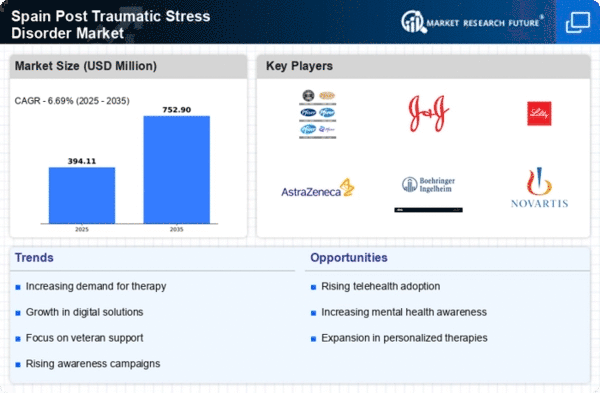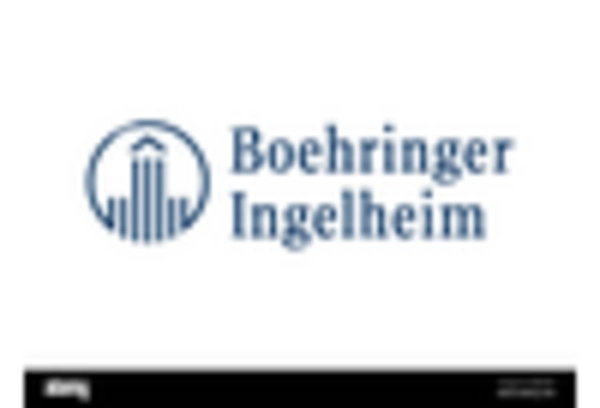Government Initiatives and Funding
Government initiatives aimed at improving mental health services in Spain are likely to bolster the post traumatic-stress-disorder market. Recent allocations of funding for mental health programs suggest a commitment to addressing PTSD and related disorders. For instance, the Spanish government has increased its budget for mental health services by 10% in the last fiscal year, which may enhance access to treatment for those affected by PTSD. This financial support could lead to the development of new therapeutic programs and resources, thereby expanding the post traumatic-stress-disorder market. As public funding increases, it is anticipated that more individuals will receive timely and effective care.
Advancements in Therapeutic Approaches
Advancements in therapeutic approaches for treating PTSD are likely to influence the post traumatic-stress-disorder market positively. Innovative treatments, such as cognitive-behavioral therapy (CBT) and eye movement desensitization and reprocessing (EMDR), have shown promising results in clinical settings. The integration of these evidence-based therapies into standard care practices in Spain may enhance treatment efficacy and patient satisfaction. As more practitioners adopt these methods, the post traumatic-stress-disorder market could experience growth driven by increased patient referrals and improved treatment outcomes. Furthermore, ongoing research into novel therapies may lead to the introduction of new options, further expanding the market.
Rising Incidence of Trauma-Related Disorders
The increasing incidence of trauma-related disorders in Spain appears to be a significant driver for the post traumatic-stress-disorder market. Recent studies indicate that approximately 7.5% of the Spanish population may experience PTSD at some point in their lives. This rising prevalence is likely influenced by various factors, including societal changes and increased exposure to traumatic events. As awareness of mental health issues grows, more individuals are seeking help, thereby expanding the market. The post traumatic-stress-disorder market is expected to see a corresponding increase in demand for effective treatment options, including therapy and medication, as healthcare providers respond to this growing need.
Growing Acceptance of Mental Health Treatment
The growing acceptance of mental health treatment in Spain appears to be a crucial driver for the post traumatic-stress-disorder market. Cultural shifts towards recognizing mental health as a vital aspect of overall well-being have led to increased willingness among individuals to seek help. Surveys indicate that nearly 60% of Spaniards now view mental health treatment positively, which may contribute to a higher demand for PTSD therapies. This evolving perception is likely to encourage healthcare providers to expand their offerings in the post traumatic-stress-disorder market, leading to a wider array of treatment options and potentially improved patient outcomes.
Impact of Social Media on Mental Health Awareness
The impact of social media on mental health awareness in Spain appears to be a significant driver for the post traumatic-stress-disorder market. Platforms such as Twitter and Instagram have become vital tools for advocacy and education, helping to destigmatize mental health issues. Campaigns promoting awareness of PTSD have gained traction, reaching a broader audience and encouraging individuals to seek help. This increased visibility may lead to a rise in demand for services within the post traumatic-stress-disorder market. As more people engage with mental health content online, it is likely that the market will continue to expand, driven by heightened awareness and the need for effective treatment solutions.
















